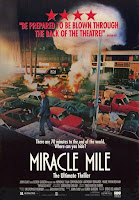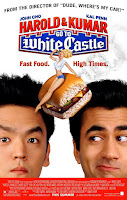"The policy-makers of the white society have caused the darkness: they created discrimination; they created slums; they perpetuate unemployment, ignorance, and poverty. It is incontestable and deplorable that Negroes have committed crimes, but they are derivative crimes. They are born of the greater crimes of white society. When we ask Negroes to abide by the law, let us also declare that the white man does not abide by law in the ghettos. Day in and day out he violates welfare laws to deprive the poor of their meager allotments; he flagrantly violates building codes and regulations; his police make a mockery of law; he violates laws on equal employment and education and the provisions for civic services. The slums are the handiwork of a vicious system of the white society; Negroes live in them, but they do not make them, any more than a prisoner makes a prison.
"Let us say it boldly, that if the total slum violations of law by the white man over the years were calculated and were compared with the lawbreaking of a few days of riots, the hardened criminal would be the white man.
"To sum up the general causes of riots, we would have to say that the white power structure is still seeking to keep the walls of segregation and inequality substantially intact while Negro determination to break through them had intensified. The white society, unprepared and unwilling to accept radical structural change, is resisting firmly and thus producing chaos because the force for change is vital and aggressive. The irony is that the white society ruefully complains that if there were no chaos great changes would come, yet it creates the circumstances breeding chaos."
A riot is an uprising, and to not at least sympathize with its members means you're going to have to come to grips with the fact that maybe you don't agree with its causes either. What do we actually value here, y'all: black lives or property? Radical change, or the oppressive status quo? Anyway, here are some reviews, if you want that. It feels kind of crass to post about movies right now, but here they are.
Movies
The Invisible Man (2020)
Probably my favorite film adaptation of The Invisible Man yet and also probably the best 2020 movie I've seen so far (as small a pool as that is). H. G. Wells's original novel (as well as the 1933 James Whale adaptation) works under the idea that the process of becoming invisible is what makes the titular man criminally insane, whereas this movie does basically the opposite, having him demonstrably malicious and abusive prior to any invisibility. With that change, as well as grounding the story not in the invisible man's perspective or that of a bystander (as the novel does) but rather in a victim of the invisible man's terror (Elizabeth Moss, great as usually), this movie makes the invisibility both a more frightening threat and also a cannier metaphor: the way that the strong and charismatic wield their power to make their abuses invisible to even their victims. People who worked under Steve Jobs talked about the "reality-distortion field" of his (extremely awful) personality, and I'd like to think that this movie's invisibility suit is a literalization of that phenomenon. The movie is clearly rich with ideas about gender, but in tandem with that, I think it also works really well as a mirror to the celebrity titans of the cult of Big Tech. Grade: A-
She Hate Me (2004)
Give or take Bamboozled, this is probably the beginning of Spike Lee's "outsider" period in earnest, and straightforwardly, it's not hard to see why. This film was a box office disaster, and on a conventional metric, it does not work at all—not just because it has the usual Spike Lee feature of feeling like a dozen movies crammed into one but also because a few of those movies crammed in here are questionable to the max. A bunch of lesbian couples pay $10,000 so they can get pregnant the "natural" way with Anthony Mackie? Anthony Mackie learns how to overcome his homophobia and reconcile with his ex-fiancé by having sex with a bunch of lesbians? Anthony Mackie, despite having signed away all his parental rights, becomes the present father to all the children he sired for the lesbian couples because children need a father or something like that? Oof, my dude. Big oof. But this is also the kind of movie that's impossible for me to dismiss. There's the pharmaceutical plot where insider trading dooms a potential AIDS vaccine; the (somewhat disconnected) story of Frank Wills and Watergate; the interrogation of the use of black bodies as conduits for capitalism. It's a weird, wild stew of ideas that is compelling as often as it is misfired and offensive. Most of this, even the wacky stuff I mentioned earlier, works in that "earnest satire" mode that Spike Lee also goes to in Chi-Raq and Bamboozled, and like those movies, as flawed as this movie is, there's a bleeding-edge urgency to what it's ultimately about: the fundamental lie of upward mobility within a capitalist system premised on the exploitation of those promised mobility, chiefly black men. It's unfortunate that this thesis is inextricably linked to the honestly kind of loathsome misogyny and homophobia of the lesbian fertility plot, because that dooms what is otherwise one of Lee's more interesting experiments to the realm of just "failed experiment." Honestly, though, the only thing that feels truly out-of-place are the critiques of the Bush 43 presidency, as if these problems would somehow go away without George W. at the helm. Kind of makes me wonder how the Trump parts of BlacKkKlansmen will feel in a decade or two. Grade: C+
Final Destination 2 (2003)
An improvement over the original if only for the reason that it completely jettisons any pretensions of being serious. Final Destination 2 is way more overtly silly than its predecessor, which is good, because that silliness is precisely what I was hoping for out of these movies. There's a real impishness to the death setpieces here, often setting up an obvious method of death for its hapless characters before juking in ridiculous ways into a completely different death at the last minute, and it's honestly some Keaton-esque slapstick genius at its best. Call me sadistic, but I just want to watch a movie where a guy wins the lottery, uses that money to buy a gigantic gold wristwatch and ring, drops that ring into a garbage disposal while cooking frozen fish sticks on the stovetop, gets his hand stuck in the disposal trying to fish out the ring on account of the gigantic gold wristwatch, watches as the grease he's cooking the fish sticks in catches on fire, flicks a rag at the burning pan until it falls off the stove and the apartment catches on fire, finally gets his hand out of the disposal and runs down the fire escape, finds that the ladder to the ground had gotten jammed, falls the remaining dozen feet down to the ground and lands on his back, sees his building explode and knock the ladder loose, and then ends up impaled through the head by the falling ladder. The parts of the movie that aren't ridiculous death traps are okay, I guess, though there's more mythology to the "you cheated Death, now Death is out to get you!" stuff than I'd like. Grade: B+
Outbreak (1995)
It's a serious social epic about a viral outbreak, but surprise! the last twenty minutes involve a helicopter chase, and the twenty minutes before that are about Dustin Hoffman and Cuba Gooding Jr. joyriding in military equipment (among them: a helicopter—lotso helicopters here, boys) to find a single monkey in a forest. Outbreak has too many pretensions of "realism" to be dumb fun, and it's too silly to ever have a hope of working as realism. The result is a movie that can't be enjoyed on any of the terms it's laid out for itself. It's also interesting to compare this pandemic to the one we're currently experiencing, most notably how little of the bureaucratic failure that exacerbated COVID-19 in real life is present here, while there is 100% more monkey theft to blame in this movie. Grade: C+
Austin Powers: International Man of Mystery (1997)
It only really has a few jokes, which quickly wear thin, and I was pretty bored by the end. There basically isn't much more here than two Mike Myers sketch-comedy-esque characters doing their shtick for 90 minutes. I did legitimately love the stuff between Dr. Evil and his son, though (Dr. Evil's monologue about his childhood in the group therapy scene is without a doubt the best minute of the movie), and even if I don't think Myer's performance in the titular role is all that funny, it's endearingly enthusiastic in a way that almost makes up for that. And as a movie comedy, this whole thing feels delightfully out-of-time—funny that a '90s movie making fun of '60s movies feels neither like a '90s movie nor a '60s movie. Grade: C+
The Naked Gun: From the Files of Police Squad! (1988)
It peaks early with the police car on the roller coaster and then the scene with O.J.'s escalating pratfalls after getting shot. The rest of the movie has its ups and downs, the downs usually having to do with gags playing out just a tad too long (that and whatever mileage you get out of some of the racial humor, e.g. the opening scene). The highs, though, are some solid Zucker-Abrams-Zucker gems, and I'm just a sucker for this kind of deadpan silliness, especially when focused on deflating the self-aggrandizement of the modern police procedural: "You killed five actors.... good ones!" Leslie Nielsen, my boy. Grade: B
Television
Bob's Burgers, Season 10 (2019-2020)
I feel like I say the same thing every time I review a season of Bob's Burgers, which is that the show is still great, firing on all cylinders. The grade only really fluctuates as a function of my mood on the morning I write the review. So anyway, Season 10 is no different, and it includes at least one all-time-great episode, "Poops!... I Didn't Do It Again." One of the consistently great things about Bob's Burgers is its ability to find the universal human experience minutia either too small or too embarrassing to be explored on TV and then devote an entire episode to it, and this one takes the cake: Louise (and Bob) must confront their difficulty with pooping in unfamiliar locations. I felt that. Grade: B+







































